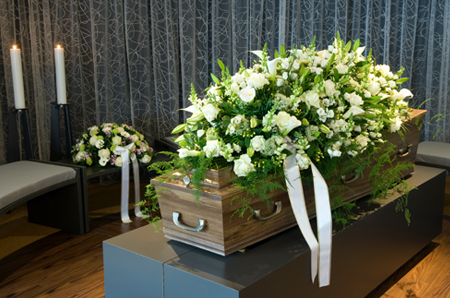At home
A death occurring at home is often the result of a long illness and although expected is still distressing.
In such cases you should telephone the deceased’s doctor surgery and inform them, the doctor will attend as soon as possible to confirm and certify death. If the death has occurred outside surgery hours or if the deceased’s doctor is unavailable, it is usual for an ‘on-call’ doctor to attend. Once the doctor has attended and has advised you that they can issue the medical certificate, you should contact ourselves and we will arrange to convey your loved one to our Chapel of Rest. If the death occurs overnight, it is usual to not contact the funeral director until the morning, however we are happy to come out it you wish, although this does incur an additional charge.
Later that day or the following day the doctor will issue a medical certificate which will give the cause of death. This will be emailed by the surgery directly to the relevant registrars office, the medical certificate is required for the death to be registered.
At a nursing or residential home
If the death occurs in a nursing or residential home, the Matron will make arrangements for the doctor to certify the death and contact your chosen funeral director.
In hospital
If the death occurs in hospital, the nursing staff will notify you and the hospital doctor caring for your loved one will issue the medical certificate. In due course, you will be contacted by the hospitals’ bereavement office who will advise when the medical certificate will have been prepared.
Sudden deaths and the role of the coroner
If the death was sudden or unexpected, or if the doctor is unable to issue the medical certificate for any reason, the matter will need to be referred to the Coroner.
If this is the case, either yourselves or the doctor should contact the police who will attend the place of death. The police attend all such cases and their attendance is simply routine and should not cause you any concern. They will make arrangements for the deceased to be conveyed to a hospital mortuary for further investigation by the Coroner.
The role of the Coroner is to investigate all sudden, unexpected, unexplained and accidental deaths. Often the Coroner will be involved simply because the deceased was not seen by their doctor in the 21 days prior to death, this being a legal requirement for the doctor to be able issue the medical certificate.
When the Coroner is involved the next-of -kin will have most contact with a coroner’s officer who will have been appointed to look after their case. The coroners officer will guide you through the investigation and answer any questions you may have.
In most cases the involvement of the Coroner will not delay the funeral unduly.






